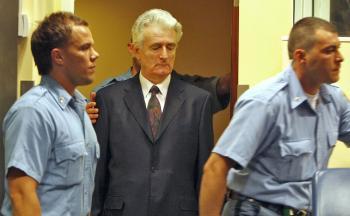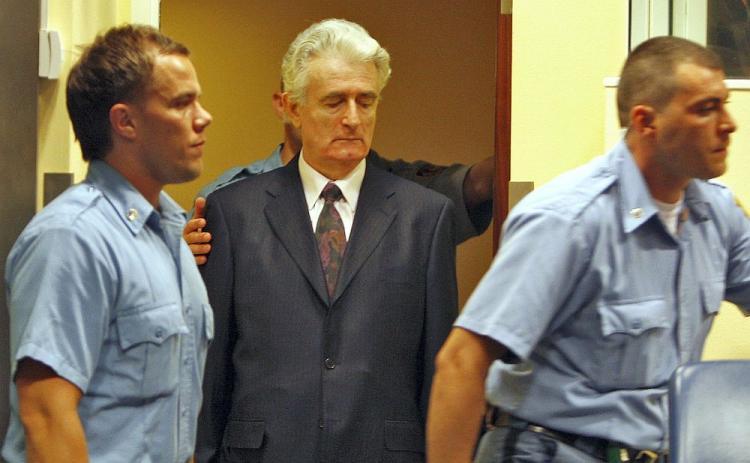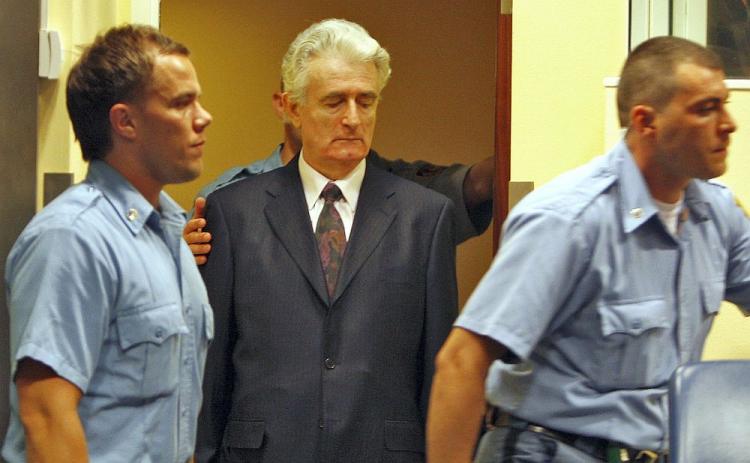Karadzic Decides to Attend His Genocide Trial After All
Former Bosnian-Serb leader Radovan Karadzic wrote a letter to judge O-Gon Kwon saying he will appear in court Nov. 3.

Former Bosnian Serb leader Radovan Karadzic (C) enters the courtroom of the International Criminal Tribunal for the Former Yugoslavia at his initial appearance on July 31, 2008, in The Hague. Jerry Lampen/AFP/Getty Images
|Updated:






